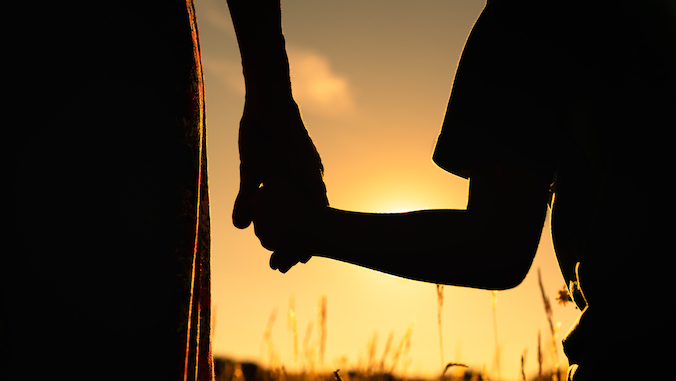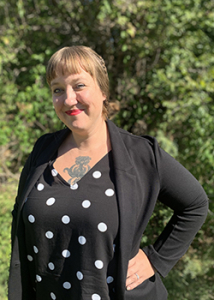
For many native peoples, colonization has had devastating effects on their way of life and traditions. The United Keetoowah Band of Cherokee Indians in Tahlequah, Oklahoma is no exception to this reality. A recent study by December Maxwell, assistant professor of social work at the University of Hawaiʻi at Mānoa’s Thompson School of Social Work & Public Health, shows important insights about post-colonial shifts in women’s experiences with pregnancy, childbirth and motherhood in Keetoowah society and how these experiences have impacted maternal mental health.
Keeping with the American Indian (AI) tradition of sharing stories through oral transmission, Maxwell used this method as her primary means of research for her publication, “Women are the Thread: Keetoowah Elders’ Experiences of Becoming a Mother.” She interviewed seven Keetoowah elders who had experience with pregnancy or childbirth, either directly or by observation. These women recounted stories from the past and compared them to those of the present day.
Motherhood then and now

In the past, Keetoowah Cherokee society was a matrilineal one, where maternal lineage determined tribal and clan ties. When a woman married, her husband moved into her home, and any children remained under her clan affiliation. Historically, maternity was revered and childbirth was a powerful time in a woman’s life. However, the removal of American Indians from their traditional lands has led to historical trauma—a well-known stressor to these communities.
As a result of this trauma, many of the Keetoowah turn to addiction. Substance abuse and subsequent poverty have become major issues in AI communities. Keetoowah elders expressed that addiction hinders a mother’s ability to fulfill her role. The opioid “epidemic” specifically has been directly linked to poor maternal mental health and more severe postpartum depressive episodes.
Though these troubling issues are only on the rise in AI society, they provide a greater opportunity for women to support one another. Maxwell found that female relatives play an indispensable role in supporting expectant and current mothers. As substance abuse renders many men increasingly absent, the burden of primary caregiver and provider has fallen to women. Sisters, mothers, grandmothers and many others form a community through which mothers are educated about traditional practices and have their basic needs provided for.
Implications for Hawaiian society
Maxwell’s research with the Keetoowah Cherokee inspired her to conduct a similar analysis of communities in Hawaiʻi. A report of her findings, entitled, “Geographical Isolation and Limited Healthcare: Becoming a Mother in Hawaiʻi during COVID,” is currently under review. Many of the Keetoowah’s struggles parallel those of Hawaiians.
One of the most prominent parallels between the Keetoowah community and Hawaiʻi’s is that both have spiritual and cultural nuances to their birthing practices that impact maternal mental health.
“There are cultural specificities in the birthing and becoming a mother experience that perinatal care providers often do not account for,” Maxwell said. “The cultural erasure mothers experience…contributes to continued historical and generational trauma.”
Looking to the future
The issues that American Indian mothers continually face are evidence of the fact that there is definite reform needed in the field of culturally responsive maternal care. More comprehensive research is necessary to better understand traditional values.
“The findings of both studies indicate a need to look at quantitative links between historical trauma and perinatal mental health and evaluate how perinatal care environments in Hawaiʻi are approaching the birthing process from a culturally grounded and informed way so as to not perpetuate historical trauma and allow people to become mothers in a culturally appropriate way,” Maxwell said.
Though the current state of affairs seems to offer a bleak outlook, Keetoowah elders emphasized the continued resilience of women despite the struggle. Community and intergenerational mentorship are the keys to supporting mothers, and these can create lasting change for the Keetoowah as well as for many other communities.
—By Maria Pou

